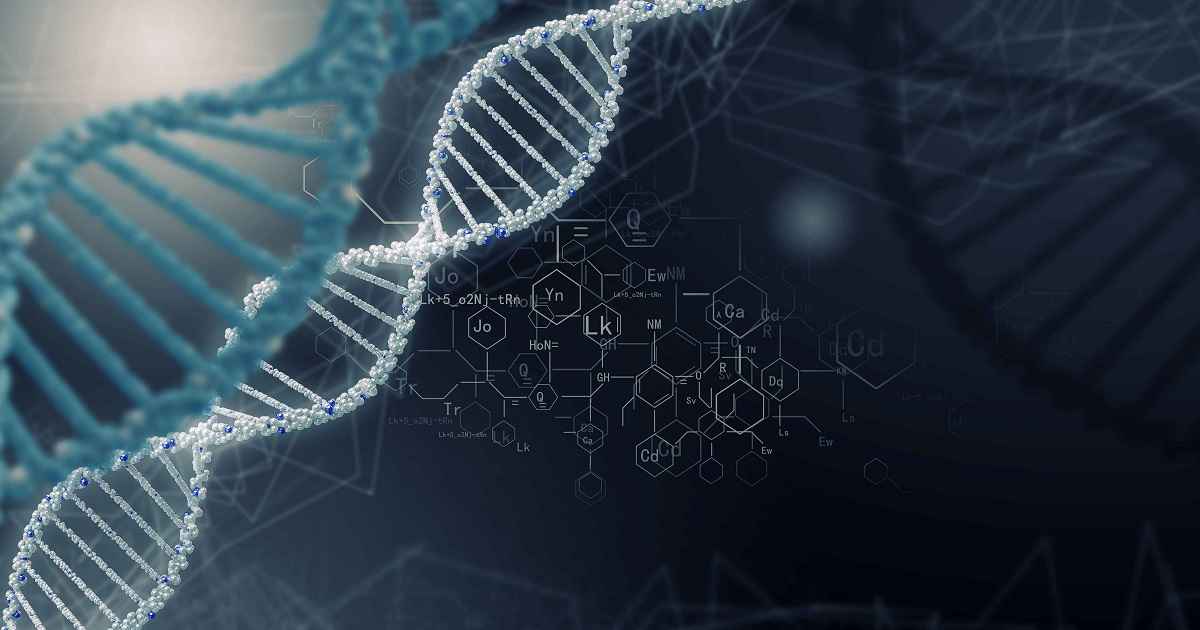
Medical
Heron Therapeutics, Inc. | January 29, 2024
Heron Therapeutics, Inc. a commercial-stage biotechnology company announced that the U.S. Food and Drug Administration (the "FDA") has approved its supplemental New Drug Application ("NDA") for ZYNRELEF® extended-release solution to expand the indication for soft tissue and orthopedic surgical procedures including foot and ankle, and other procedures in which direct exposure to articular cartilage is avoided. ZYNRELEF was previously approved for foot and ankle, small-to-medium open abdominal, and lower extremity total joint arthroplasty surgical procedures in adults.
This expanded indication for ZYNRELEF will now cover an estimated 13 million procedures annually, an estimated increase of 86% over prior indicated procedures. To obtain this labeling expansion, Heron successfully conducted studies for cesarean section, spinal surgery, augmentation mammoplasty, and total shoulder arthroplasty. No unique safety issues were identified from the new clinical trials, and the bupivacaine and meloxicam blood concentrations were consistent with previous experience following ZYNRELEF administration.
"The expanded indication is poised to have a transformative impact on patient care, providing healthcare professionals with a versatile and effective solution for managing postoperative pain across an even wider range of surgical procedures. The new label expansion and recent partnership with CrossLink, combined with the potential approval of the Vial Access Needle ("VAN") later this year, are expected to have a significant positive impact for ZYNRELEF and the Company," said Craig Collard, Chief Executive Officer of Heron.
"We're excited for the opportunity to give even more healthcare providers and patients a new, safe and effective option for achieving long-lasting non-opioid pain control after painful surgical procedures," said Bill Forbes, Executive Vice President, Chief Development Officer at Heron. "This new approval further reinforces our commitment to providing meaningful solutions to address unmet medical needs in the acute care and oncology settings."
ZYNRELEF is the first and only therapy for postoperative pain management to be rigorously tested in Phase 3 studies and demonstrate superiority to bupivacaine solution, the current standard-of-care. ZYNRELEF demonstrated superiority compared to bupivacaine with lower pain scores, fewer patients experiencing severe pain, and lower opioid consumption. ZYNRELEF was initially approved by the FDA in May 2021 and received approval of the first supplemental NDA for an expanded label in December 2021.
"Patients undergoing orthopedic procedures often experience severe pain, slowing down their recovery time and potentially leading to other complications. Reducing patients' pain within the first three days is critical for patient satisfaction, and having a product like ZYNRELEF now available for additional orthopedic procedures is a great benefit to have in my practice," said Alexander Sah, M.D., orthopedic surgeon at Sah Orthopaedic Associates. "ZYNRELEF helps my patients recover fully, be discharged sooner, and have significantly less pain, with little to no opioid use."
Important Safety Information for Patients
ZYNRELEF contains an NSAID (non-steroidal anti-inflammatory drug), a type of medicine which
Can increase the risk of a heart attack or stroke that can lead to death. This risk increases with higher doses and longer use of an NSAID.
Cannot be used during heart bypass surgery.
Can increase the risk of gastrointestinal bleeding, ulcers, and tears.
ZYNRELEF should also not be used
if you are allergic to any component of ZYNRELEF, similar local anesthetics, aspirin or other NSAIDs (such as ibuprofen or naproxen), or have had an asthma attack, hives, or other allergic reaction after taking any of these medicines.
as a paracervical block, during childbirth.
The most common side effects of ZYNRELEF are soft tissue procedures: vomiting and orthopedic procedures: constipation and headache.
The medicines in ZYNRELEF (a local anesthetic and an NSAID) may affect the nervous and cardiovascular system; may cause liver or kidney problems; may reduce the effects of some blood pressure medicines; should be avoided if you have severe heart failure; may cause adverse effects on cartilage; may cause a rare blood disorder, or life-threatening skin or allergic reactions; may harm your unborn baby if received at 20 weeks of pregnancy or later; and may cause low red blood cells (anemia).
Tell your healthcare provider about all your medical conditions and about all the medicines you take including prescription or over-the-counter medicines, vitamins, or herbal supplements to discuss if ZYNRELEF is right for you.
Talk to your healthcare provider for medical advice about side effects. Report side effects to Heron at 1-844-437-6611
The information provided here is not comprehensive. Please see full Prescribing Information, including Boxed Warning.
About ZYNRELEF
ZYNRELEF is the first and only dual-acting local anesthetic that delivers a fixed-dose combination of the local anesthetic bupivacaine and a low dose of nonsteroidal anti-inflammatory drug meloxicam. ZYNRELEF is the first and only extended-release local anesthetic to demonstrate in Phase 3 studies significantly reduced pain and significantly increased proportion of patients requiring no opioids through the first 72 hours following surgery compared to bupivacaine solution, the current standard-of-care local anesthetic for postoperative pain control. ZYNRELEF was initially approved by the U.S. Food and Drug Administration (the "FDA") in May 2021 for use in adults for soft tissue or periarticular instillation to produce postsurgical analgesia for up to 72 hours after bunionectomy, open inguinal herniorrhaphy and total knee arthroplasty. In December 2021, the FDA approved an expansion of ZYNRELEF's indication to include foot and ankle, small-to-medium open abdominal, and lower extremity total joint arthroplasty surgical procedures. On January 23, 2024, the FDA approved ZYNRELEF for soft tissue and orthopedic surgical procedures including foot and ankle, and other procedures in which direct exposure to articular cartilage is avoided. Safety and efficacy have not been established in highly vascular surgeries, such as intrathoracic, large multilevel spinal, and head and neck procedures. ZYNRELEF was granted a marketing authorization by the European Commission in September 2020 and by the United Kingdom Regulatory Authority in January 2021. In August 2023, we cancelled the ZYNRELEF U.K. marketing authorization and, in October 2023, we cancelled the ZYNRELEF European Union (EU) marketing authorization, as we do not plan to commercially launch ZYNRELEF in the U.K. or the EU.
About Heron Therapeutics, Inc.
Heron Therapeutics, Inc. is a commercial-stage biotechnology company focused on improving the lives of patients by developing and commercializing therapeutic innovations that improve medical care. Our advanced science, patented technologies, and innovative approach to drug discovery and development have allowed us to create and commercialize a portfolio of products that aim to advance the standard-of-care for acute care and oncology patients.
Read More

MedTech
Stevanato Group | January 25, 2024
Stevanato Group S.p.A. a leading global provider of drug containment and delivery solutions to the pharmaceutical, biotechnology, and life sciences industries, unveiled today two new offerings for efficient small batch pharmaceutical manufacturing: the EZ-fill® Kit and the non-GMP laboratory fill and finish service at its Technology Excellence Centers (TEC).
In a context where reducing time-to-market is key, Stevanato Group’s new EZ-fill® Kit offers fast access to a customizable and versatile solution to pharma and biotech companies needing to efficiently fill small batches with high-quality injectable formulations during clinical trials or commercial phases.
The surge the industry has seen in biopharmaceuticals treating various diseases in several therapeutical areas may signal a significant growth potential for pharmaceutical companies. Injectables, comprising more than 60% of the over 21,000 drugs currently in development, of which 44% are biopharmaceuticals, require high-performance primary packaging and delivery technologies for proper storage and administration.
Stevanato Group’s EZ-fill® Kit builds on its existing ready-to-use platform of pre-sterilized containment solutions – vials, cartridges, and syringes – allowing customers to effectively screen different primary packaging in combination with drug products. The kit will be available as a modular box made up of glass ready-to-use drug containers and add-on components on request, shipped by courier. As a result, the platform can bring enhanced levels of quality and safety to patients across the entire drug life cycle and improve the rate at which new drugs enter the market. EZ-fill® Kit will be presented at Pharmapack and is expected to be available commercially beginning in the second quarter of 2024.
Additionally, to better support customers, Stevanato Group has introduced a non-GMP laboratory filling and finishing service at its Technology Excellence Centers (TEC) in Boston, USA, and Piombino Dese, Italy. This new service allows customers to assess and identify the possible effects of the fill-and-finish process on their product performance as early as the container selection stage, thus de-risking processes and enhancing development and commercialization strategy.
“In the race to bring new advanced biopharmaceutical products to market and to patients, Stevanato Group is tackling the challenge of supporting customers with flexible drug containment and filling solutions in a timely manner," says Fabio Bertacchini, Senior Director EZ-fill® Vials & Cartridges at Stevanato Group. "Stevanato Group remains focused on developing new offerings that can help raise pharmaceutical manufacturing standards. By leveraging the expertise provided by our global TEC Centers, we aim to support customers' innovation, helping them face tests and de-risking processes and making right-the-first-time choices throughout their drug development journey.”
About Stevanato Group
Founded in 1949, Stevanato Group is a leading global provider of drug containment, drug delivery and diagnostic solutions to the pharmaceutical, biotechnology and life sciences industries. The Group delivers an integrated, end-to-end portfolio of products, processes and services that address customer needs across the entire drug life cycle at each of the development, clinical and commercial stages. Stevanato Group’s core capabilities in scientific research and development, its commitment to technical innovation and its engineering excellence are central to its ability to offer value added solutions to clients.
Read More

Medical
Personalis, Inc. | February 05, 2024
Personalis, Inc. a leader in advanced genomics for cancer, and ClearNote Health, Inc., a pioneer in epigenomic technologies, today unveiled an alliance through which Personalis will expand its pharmaceutical service offerings by distributing ClearNote’s cutting-edge epigenomic 5-hydroxymethylcytosine (5hmC) platform.
“We have built a unique pharma channel based on our industry-leading tissue and MRD assays and ClearNote Health’s blood-based epigenomic approach is complementary to our offering as it helps our customers deepen their understanding of a patient’s response to immunotherapies,” said Chris Hall, CEO and President of Personalis. “Commercial partnerships such as this broaden our portfolio and are expected to appeal to a wide range of biopharma customers and accelerate our revenue growth.”
Echoing this sentiment, Dave Mullarkey, CEO of ClearNote Health, remarked, “Partnering with Personalis presents an excellent opportunity to bring our 5hmC technology to the forefront of cancer research. This alliance is a testament to the synergy between our two companies, enabling us to expand our reach and significantly impact the biopharmaceutical industry. Together, we can accelerate the development of personalized therapies and make a real difference in the lives of patients.”
ClearNote Health’s Epigenomics Platform represents a groundbreaking advance in cancer detection, offering real-time insights into disease-specific pathways. By tracking changes in 5hmC levels coupled with artificial intelligence-based analytical methods, the platform can detect cancer earlier, monitor disease progression, understand mechanisms of resistance, and identify promising drug targets and biomarkers. These insights are invaluable for optimizing drug development programs and delivering more effective treatments to patients. The Epigenomics Platform identifies changes in gene activation and gene regulation by labeling specific changes in the 5hmC landscape from plasma-derived cell-free DNA. This rich biological information, as part of clinical trials, enables the monitoring of cancer therapies in real time and contributes to an understanding of drug resistance mechanisms. The partnership marks a pivotal moment in cancer research, leveraging the strengths of both companies to offer unparalleled solutions in the biopharmaceutical industry.
About ClearNote Heath, Inc.
ClearNote Health is a cancer detection company focused on enabling people at risk for high-mortality cancers to live longer, healthier lives. Utilizing a standard blood draw, the company applies its proprietary epigenomic platform, combining biology and artificial intelligence, to identify DNA-based changes in biology as cancer develops. With lead programs in non-invasive early detection of pancreatic and ovarian cancers in patients at the highest risk for these diseases, ClearNote Health identifies cancers before they progress and when patients are most likely to benefit from treatment. ClearNote Health’s first commercially available test is the Avantect™ Pancreatic Cancer Test, which detects the presence of pancreatic cancer signals in patients at high risk of the disease, including those recently diagnosed with Type 2 diabetes. ClearNote Health is headquartered in San Diego, with additional presence in the San Francisco Bay area and internationally. The company’s CLIA- and CAP-accredited laboratory is located in San Diego, Calif.
About Personalis, Inc.
At Personalis, we are transforming the active management of cancer through breakthrough personalized testing. We aim to drive a new paradigm for cancer management, guiding care from biopsy through the life of the patient. Our highly sensitive assays combine tumor-and-normal profiling with proprietary algorithms to deliver advanced insights even as cancer evolves over time. Our products are designed to detect minimal residual disease (MRD) and recurrence at the earliest time points, enable the selection of targeted therapies based on ultra-comprehensive genomic profiling, and enhance biomarker strategy for drug development. Personalis is based in Fremont, California.
Read More